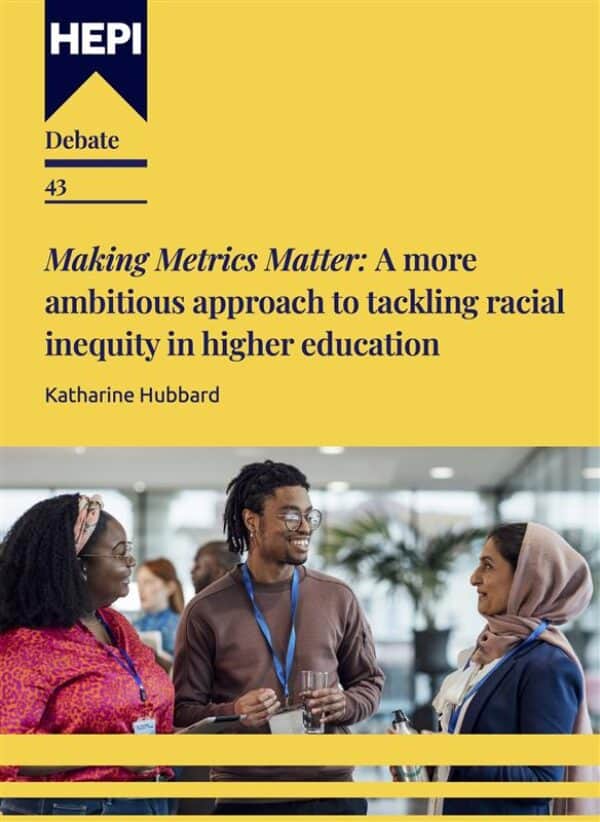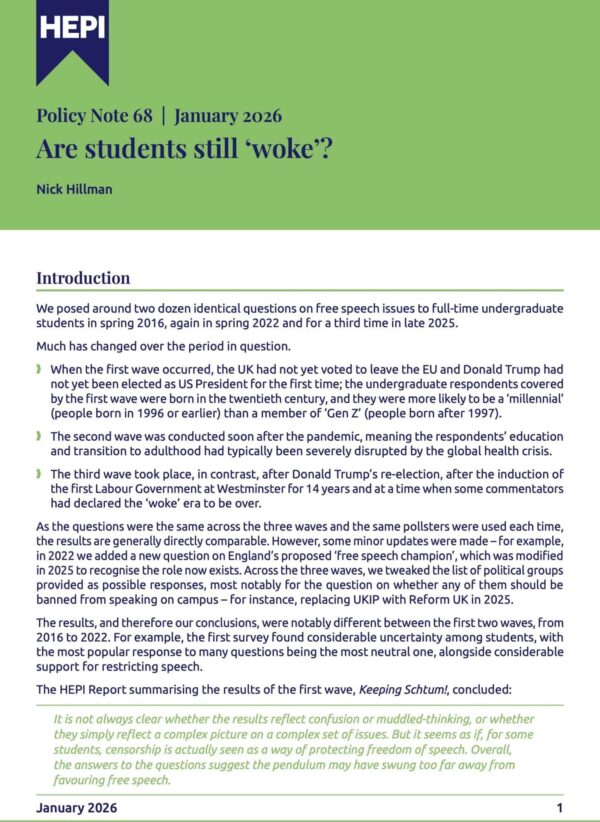Rethinking Exams in the Age of AI: Should We Abandon Them Completely?
By Dr Andrew Woon, Senior Lecturer in Strategic Management at Queen Mary, University of London.
In recent years, universities around the world have been moving away from traditional exams in an effort to improve assessment practices, address equity concerns and adapt to the evolving educational landscape.
Top institutions such as Oxford and Cambridge are also shifting towards more inclusive forms of assessment to reduce awarding gaps. This raises the question: Do inclusive assessments omit certain opportunities for students’ learning and development?
Critics argue that exams often measure test-taking ability rather than genuine understanding and may fail to assess all students’ knowledge and skills accurately. Others contend that exams do little to prepare students for their future careers.
As a result, universities are adopting a range of assessment methods to support student learning and ensure inclusivity. These approaches aim to recognise a broader range of skills and attributes essential for future success.
I believe the key argument for retaining exams is not that they are more ‘secure’, but that their true value lies in ensuring students, especially those in high-stakes professions like Medicine and Education, could develop a deep, internalised understanding of their subject matter.
Take Medicine, for example. We wouldn’t want to be treated by a doctor who relies on ChatGPT to make clinical decisions. While AI can assist with diagnostics and offer suggestions, it lacks the human ability to assess a patient holistically, considering subtle symptoms, emotional cues and contextual factors. These are skills that must be trained, practiced and tested rigorously.
This is why accounting professional bodies such as ACCA and ICAEW continue to use exams as a primary assessment method, as they provide a standardised and objective measure of knowledge and skills. Exams help ensure that future professionals are not just good at looking up answers, but are also able to think critically, connect the dots, and make informed decisions independently.
Moreover, the purpose of exams extends beyond evaluating academic knowledge; they also help students identify their weaknesses and develop critical skills. While in-person exams can be stressful and inflexible, they offer benefits beyond knowledge testing. They cultivate vital skills such as time management, organisation and resilience under pressure, key competencies for both interpersonal growth and employability.
Many students shy away from exams because they struggle to perform well in a high-pressure, time-constrained environment with limited support. This may indicate a need to develop key competencies, such as time management and stress regulation, rather than suggesting that exams are inherently flawed.
Traditionally, students were trained to master literacy skills — to read, write, and think critically. While exams may miss opportunities to develop other important skills such as teamwork, communication and leadership, removing exams altogether may also reduce opportunities for students to improve their academic literacy. Writing, in particular, requires a good understanding of content and the ability to think critically, skills that are often cultivated through exam preparation and performance.
One of the most common arguments against exams is that they are not authentic and offer limited opportunities for skill development. According to Newman et al. (1998), assessment is considered authentic when it evaluates products or performances that hold meaning or value beyond mere academic success. Similarly, Wiggins (1989) defines authentic assessment as involving tasks that represent real-world challenges within a given discipline. These tasks are designed to mirror complexity, requiring depth over breadth.
Clearly, a well-designed exam can be authentic when it provides opportunities for meaningful skill development. For example, incorporating case studies into exams allows students to engage in deeper learning, apply knowledge to real-world contexts, and strengthen academic literacy at the same time.
After all, traditional exams, when thoughtfully designed, can play a valuable role in developing traditional literacy skills, including reading, writing and critical thinking, which remain essential in the age of AI.
As AI tools increasingly streamline reading and writing tasks across the education system, reinforcing these foundational skills becomes even more important. Promoting reading and writing through assessment can help combat aliteracy — a growing issue where students are capable of reading but choose not to, often due to the influence of social media and digital distractions.
I believe exams offer a rare opportunity and space for students to engage in undivided intellectual immersion, because exams create structured, distraction-free environments that demand focused engagement. They encourage deep reading, critical analysis and articulation without reliance on external assistance. Over time, such training can help counter aliteracy by reinforcing the value and interest of independent intellectual engagement.
I embrace new technologies and innovative forms of assessment, but that doesn’t mean we should completely abandon traditional exams. Exams can and should coexist with other assessment methods, including those supported by AI, to enrich student learning. The purpose of assessment goes beyond assigning grades or preparing students for their first job; it is about equipping them for life in all its dimensions.
While technologies will continue to evolve, essential skills such as reading, writing, and critical thinking will remain foundational. Therefore, students must be literate to effectively process information and use AI intelligently.
Importantly, every assessment method has its advantages and disadvantages. Therefore, educators need to take a holistic approach to assessment design and policymaking. For example, using low-stakes, open-book exams can help reduce student stress while still supporting skill development. Additionally, providing tailored support for students with ADHD during exams can enhance their learning experience and ensure they are not placed at a disadvantage.
Lastly, I hope this opinion piece encourages fellow colleagues to reflect before the new academic year begins. Rather than simply jumping on the AI bandwagon, we must remember the critical role we play in safeguarding our students’ futures. Our responsibility is to equip them with the life skills they need to thrive in an ever-evolving world.






Comments
Samuel Cameron says:
Hooray someone talking sense. It should be mandatory cheerleaders for AI like Starmer should be grilled for an hour in public about
its issues like hallucination. What kind of idiot
wants to charge into use of something that
actually makes up completely nonsensical non facts like non existent law cases etc. This moronic enthusiasm for it is like rolling out drugs after a one day trial. Erosion of exams is a long term trend drive by money and bureaucratic non ethical management. It has no other basis. I have certainly worked on many degrees where the desire to remove exams was worrying about people actually failing instead of shoving in a bought essay or whatever and passing.
Reply
Ros lucas says:
Why use scarce funding on exams that do not contribute to ongoing learning, development and achievement.
Thinking of surgeons I would prefer one who did D&T and was able to use AI and scanners effectively to avoid so many unnecessary visits when initial diagnosis not secure…
Discussion, application, forward planning a d evakuatiin throughngoing assessment would avoid costly need for end of course and final exams too.
Reply
andrey says:
Thought-provoking topic! With AI reshaping learning, it’s time to rethink traditional exams and explore more practical, skills-based assessment methods.
Reply
Add comment